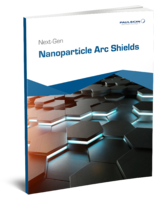ASTM Homeland Security Committee develops two new standards.
Press Release Summary:
Two ASTM specifications present baseline performance requirements for point chemical vapor detectors. ASTM E2885 focuses on portable handheld detectors used by first responders and HAZMAT teams, while ASTM E2933 concentrates on stationary detectors designed to operate continuously in and around public, non-industrial facilities. Both guide designers, manufacturers, integrators, procurement officials, and end users by providing common set of parameters for how detectors should operate.
Original Press Release:
New Standards from ASTM International Homeland Security Committee
Specifications Present Baseline Requirements for Handheld and Stationary Point Chemical Vapor DetectorsÂ
W. CONSHOHOCKEN, Pa., —Two new ASTM International specifications are the first standards to present baseline performance requirements for point chemical vapor detectors. The standards were developed as the result of a need recognized by the U.S. Department of Homeland Security for chemical, biological, radiological, nuclear and explosives detection capability, as well as the need to set standards so that manufacturers and users of such capabilities have a benchmark to achieve efficacy.
The recently approved standards are ASTM E2885, Specification for Handheld Point Chemical Vapor Detectors (HPCVD) for Homeland Security Applications, and ASTM E2933, Specification for Stationary Point Chemical Vapor Detectors (SPCVD) for Homeland Security Applications. Both standards were developed by Subcommittee E54.01 on CBRNE Sensors and Detectors, part of ASTM International Committee E54 on Homeland Security Applications.
ASTM E2885 focuses on portable handheld detectors used by first responders and HAZMAT teams, while ASTM E2933 concentrates on stationary detectors designed to operate continuously in and around public, non-industrial facilities. The new standards will guide detector designers, manufacturers, integrators, procurement officials and end users by providing a common set of parameters for how point chemical vapor detectors should operate.
“These ASTM standards provide an opportunity to inform state, local tribal and territorial government agencies, as well as privately owned and/or operated venues designed for large gatherings, with an established performance specification for chemical vapor detectors,” said Dr. Pamela Chu, National Institute for Standards and Technology, and an E54 member. “Users can also customize their specific performance requirements depending on the venue or location.”
To purchase ASTM standards, visit www.astm.org and search by the standard designation, or contact ASTM Customer Relations (phone: 877-909-ASTM; sales@astm.org). ASTM International welcomes participation in the development of its standards. For more information on becoming an ASTM member, visit www.astm.org/JOIN.
ASTM International is one of the largest international standards development and delivery systems in the world. ASTM International meets the World Trade Organization (WTO) principles for the development of international standards: coherence, consensus, development dimension, effectiveness, impartiality, openness, relevance and transparency. ASTM standards are accepted and used in research and development, product testing, quality systems and commercial transactions.
For more news in this sector, visit www.astm.org/sn-safety or follow us on Twitter @ASTMSafety.
ASTM Committee E54 Next Meeting: Jan. 27-29, 2014, January Committee Week, Houston, Texas
Technical Contact: Pamela Chu, Ph.D., National Institute for Standards and Technology, Gaithersburg, Md., Phone: 301-975-2988; pamela.chu@nist.govÂ
ASTM Staff Contact: Rick Lake, Phone: 610-832-9689; rlake@astm.org
ASTM PR Contact: Barbara Schindler, Phone: 610-832-9603; bschindl@astm.org




